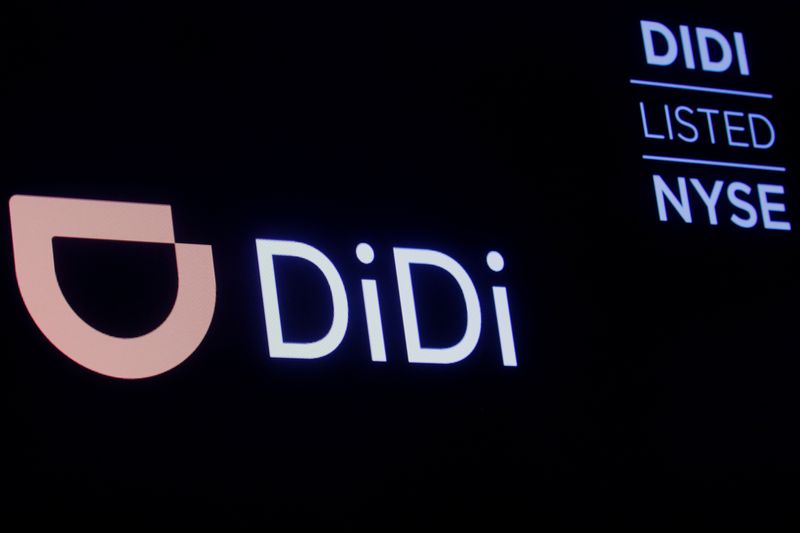By Josh Ye
HONG KONG (Reuters) -Chinese EV maker Xpeng (NYSE:XPEV) said it would buy Didi's electric car development business - a deal worth up to $744 million that will see it supply vehicles to the ride-hailing giant, boosting production and cutting costs.
Shares in Xpeng, one of China's smaller electric vehicle manufacturers and currently loss-making, shot up 11% in Hong Kong trade on the news which comes on the heels of a stake sale to and partnership with Germany's Volkswagen (ETR:VOWG_p).
The all-stock deal with Didi calls for Xpeng to launch an A-class model next year under a new brand, in a project called MONA, which will be priced in the 150,000 yuan ($20,000) price tier. Xpeng's current offerings are mostly priced above 200,000 yuan.
"As an EV startup, we are not as skilled as established automakers like Volkswagen in terms of scale and cost management in the 150,000 yuan segment...the partnership with Didi will ensure better-than-expected initial scale for the car and achieve a combination of goals in innovation and supply chain management," Xpeng Chief Executive He Xiaopeng told Chinese media, according to a company-provided transcript.
He added that the car would also be sold to retail customers and he expects sales of at least 100,000 MONA cars a year.
Didi's development of an EV car had invited speculation that it had ambitions to shift into manufacturing, but the announcement - Didi's first major transaction since its apps were restored to China app stores in January after a regulatory crackdown on its business - suggests the company is moving in another direction.
Slower demand and excess manufacturing capacity in China's EV industry have intensified competition and made it hard for relative newcomers such as Didi to enter the market. Smartphone maker Xiaomi only recently won a regulatory nod to manufacture EVs - two years after first announcing such plans, sources have said.
Didi's decision to partner with Xpeng over other EV makers likely marked recognition of Xpeng's technology and the deal will benefit Xpeng as the sedan Didi has developed would be suitable for selling to other businesses, said Yale Zhang, managing director at Shanghai-based consultancy Automotive Foresight.
"It looks like a very good strategic move," he said.
Under the deal, Didi will gain around 3.25% of Xpeng, with the EV maker issuing shares at HK$64.03 each, worth $474 million in total. The offer price represents a 1.7% discount to its closing price on Friday.
If vehicle delivery targets are fulfilled, Didi's stake could climb to 5.26% for a deal value of up to $744 million.
Didi said the two companies will explore strategic cooperation in a number of areas, including marketing, financial and insurance services.
Other possible areas of cooperation include charging, robotaxis and jointly developing an international market. Didi has been working with Chinese carmakers to develop robotaxis which it aims to put in service by 2025.
Xpeng , which is also listed in New York, has been grappling with expanding losses and slumping sales amid an industry-wide price war started by Tesla (NASDAQ:TSLA) in January. Its U.S.-listed shares were up 8% in pre-market trade.
CEO He said in April that he expected to see only eight automakers survive in the Chinese auto market - the world's biggest - by 2030. That compares with 65 auto manufacturers currently.
XPeng sold some 41,000 EVs in the first half, accounting for nearly 2% of battery vehicle sales in China. By comparison, rivals BYD and Tesla sold 550,000 and 294,000 EVs respectively.
Xpeng said the new mass-market brand it aimed to introduce using the MONA platform would begin mass production in the second half of 2024.
